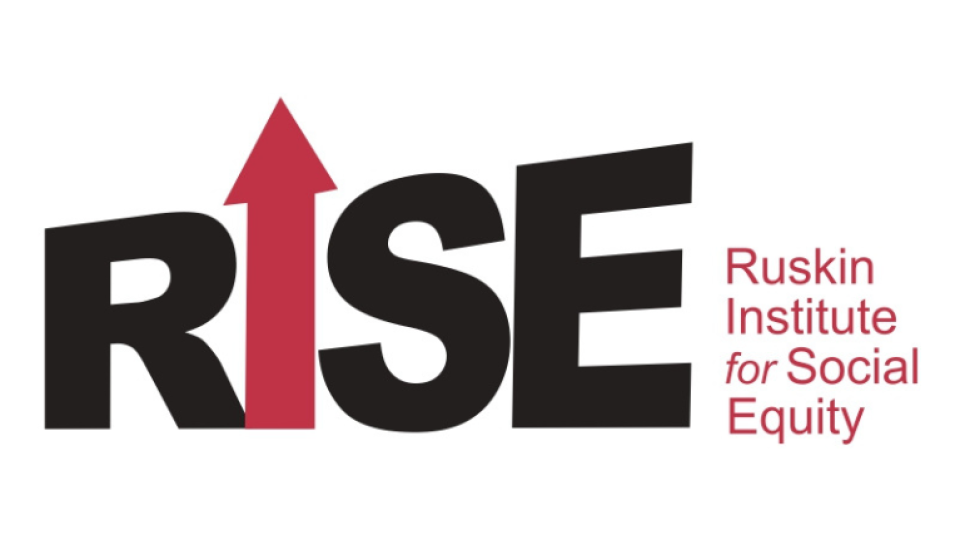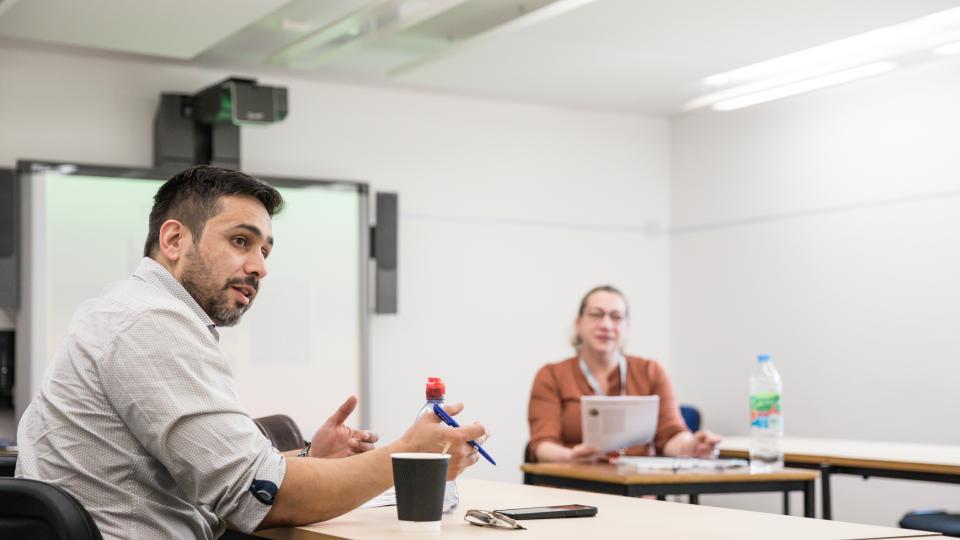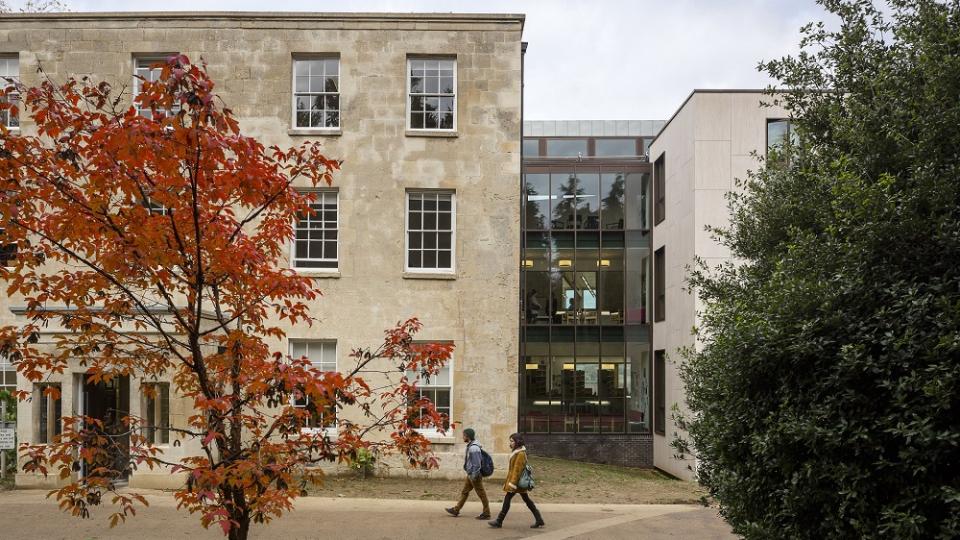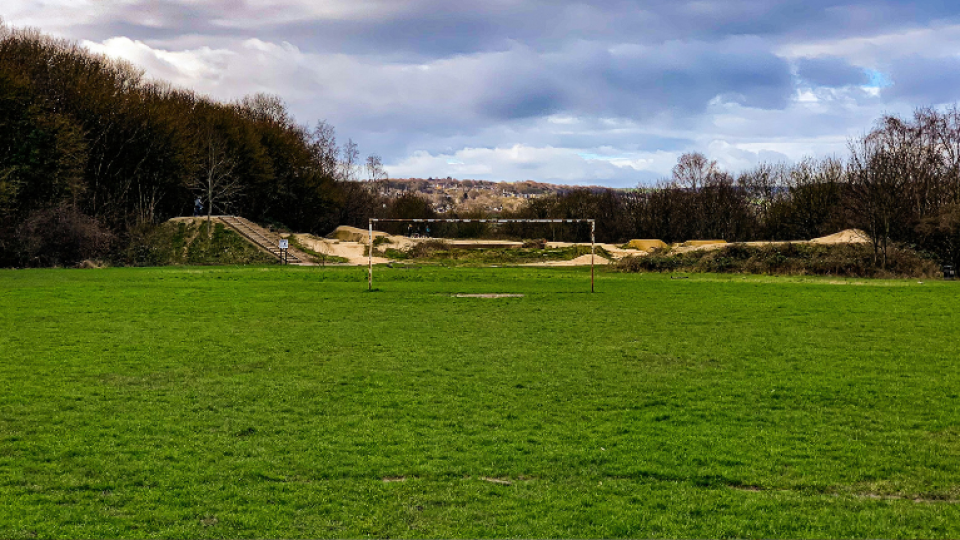
Ruskin Institute for
Social Equity (RISE)
About the Institute
The Ruskin Institute for Social Equity (RISE) was launched in September 2024. It builds on the work of the Centre for Inequality and Levelling Up (CEILUP) at the University of West London, which finished its work in July 2024 with the election of a new Labour government.
RISE produces policy-relevant research related to inequality in the UK with a particular focus on place-based inequality, education and skills, work/labour market and the role of business. It is based at Ruskin College, Oxford.
The institute will be supported by a group of Ruskin Visiting Fellows drawn from politics, higher education and the charitable sector.
RISE research
A different future – How business can reduce inequality
The responsibility for combating inequality is usually perceived as lying with the government. However, the deep-rooted nature of inequality in the UK means that addressing it requires a whole society and economy approach which includes the business sector. This report, supported by The Co-operative Group, outlines what role business has and could have in addressing inequality at the national and local levels. It draws upon discussions with 50 businesses and other stakeholders in the business sector. It includes case studies of initiatives that businesses are undertaking as well as an analysis of the structures and culture required to increase commitment to address inequality from the business sector. It also outlines recommendations for policymakers and businesses.
CEILUP research
When is a fund not a fund? Exploring the financial support for levelling up
This paper examined the different funding streams associated with the levelling up agenda pursued by the Conservative government elected in the United Kingdom in 2019. It explores in detail a number of funding streams that this government has associated with levelling up to understand their relationship to the levelling up agenda. The article also analyses the relationship between the levelling up missions and the funding associated with levelling up.
Funding levelling up – who did well and who missed out?
November 2023 saw the government distribute the final round of levelling up funding, bringing its total investment in spreading opportunity more equally across the UK to £4.8bn. The report follows on from CEILUP’s earlier work looking at the first two rounds of funding. The new report argues that the money has been distributed in a way that is consistent with ex-Prime Minister Boris Johnson’s vision of levelling up, which he laid out after winning the 2019 general election. Johnson saw it as a way of redressing the balance between the North and South of England through physical regeneration projects in towns and cities in the north.
How can Labour level up?
Levelling up was meant be to the centrepiece of the Conservative's domestic agenda after they were elected in 2019. However, a combination of the pandemic and the Ukraine war, together with a draining away of commitment from the government as its leadership changed, has left the levelling up agenda at a far less advanced stage than intended.
The focus on levelling up has thrown the gauntlet down to the opposition parties and to Labour in particular. Reducing inequality is at the heart of what Labour stands for and the problems that inequality brings is central to voters in many of the seats that Labour needs to win if it is to form the next government.
A CEILUP report, How Can Labour Level Up?, was launched on 11 July 2023 at a reception in the House of Commons, with speakers including Alex Norris (MP for Nottingham North), Dan Norris (Metro Mayor for the West of England), Justine Greening (former Secretary of State for Education and Minister for Women and Equalities) and Professor Peter John (Vice-Chancellor, UWL).
Funding levelling up: who really benefits?
The levelling up funding ‘envelope’ illustrates some of the tensions inherent in how levelling up has been delivered. Funding is more focused on more deprived areas but it is also spread across a range of areas unevenly with some receiving far more than others. Analysis of the funding illustrates some of the difficulties in trying to satisfy different target groups via a range of funds and allocating them via competitive bidding thus also trying to satisfy different government departments.
Levelling Up Fund: Round 2 Briefing
The government has announced the allocation of £2.1 billion of Levelling Up Fund round 2 monies to 111 local areas of the country. Our research has shown that the funding has moved south and that deprived areas are getting less. We also found that nearly a quarter of the 100 most deprived areas have received no money in round 1 and round 2.
Can levelling up make a difference to inequality? A Ruskin College Seminar
Without long term commitment, a willingness to confront the deep rooted inequalities and a radical rebalancing of power the government’s levelling up agenda risks missing its goals is the message from a new pamphlet from the Centre for Inequality and Leveling Up. Bringing together leaders from politics, academia and civil society, ‘Can levelling up make a difference to inequality?’ highlights the challenges that addressing regional inequalities faces in the context of the cost of living crisis and argues that cross sector working is essential.
Contributors include Philip Collins, associate editor of the New Statesman, Matt Leach, CEO of Local Trust; Professor Jonathan Michie, President of Kellogg College at the University of Oxford; Professor Graeme Atherton, Head of the Centre for Inequality and Levelling Up (CEILUP) and Professor Peter John CBE, Vice-Chancellor and President at the University of West London and Principal of Ruskin College.
Mission improbable: how the cost of living crisis will affect levelling up
This report brings together the best available evidence on the relationship between the 12 levelling up missions published in the Levelling Up White Paper and the cost of living crisis before assessing the degree to which their achievement is under threat from the consequences of this crisis. To do this, a review encompassing over 100 pieces of secondary research that connected the missions with the cost of living crisis was undertaken.
Our analysis of the available evidence shows that 8 of the 12 missions are at high risk of not being achieved due to the cost of living crisis; 2 are at medium risk and 2 at low risk. Overall, we find that: poverty and recession make almost all the missions harder the achieve; the missions are heavily dependent on public investment; and each mission has multiple parts where one or more parts could be achieved while others may not be.
Levelling Up - What is it and can it work?
Our edited collection brings together some of the most prominent voices on levelling up to offer their perspectives on what levelling up means. The report offers a system-thinking approach that connects policies to address levelling up together. It outlines seven principles that should underpin any policy approach to inequality or levelling up.
Contributors include the Co-Chairs of the All-Party Parliamentary Group for ‘left behind’ neighbourhoods; former Secretary of State for Education, Rt Hon Justine Greening; the House of Lords Public Services Committee; ex Shadow Secretary of State for Further, Higher Education and Skills, Gordon Marsden; Centre for Cities; TUC; Green Alliance; the Institute for Economic Development; Policy Connect; Local Trust; the Commission into Prosperity and Community Placemaking; The Salvation Army; Stoke-on-Trent City Council; and the universities of Birmingham, Derby, London and West London.
Learning about place: Understanding lifelong learning and social mobility in Covid Britain
This report explores the evolving and multidimensional understanding of ‘place’ and opportunities to live, learn and work where you grew up, and the sense of identity and attachment that people feel for their local areas.
Consulting across schools, colleges, universities and local authorities over the past year, in eight areas - (Blackpool, Derby, Oldham, Peterborough Sheffield, Stoke, Wakefield and Wrexham – all towns where Labour lost seats in the 2019 general election), our research found a drastic reduction in community-based and introductory learning opportunities, which help older adults and vulnerable people to get back into learning.
Funding Levelling Up - The story so far
This paper examines how the funds distributed via the government’s Levelling Up Fund (LUF) and the UK Community Renewal Fund (UKCRF) have been distributed. It uses the data available to outline which geographical areas have received funds and which have not and places the use of this funding in its broader context with regard to other funding distributed from central government. Our research showed that some of the most deprived areas have not received any funds, raising questions about how the money was allocated.
In the news
-
Making a success of Skills England
Making a locally-led approach from the beginning would give Skills England an immediate kickstart and mark it as different from its predecessors, argues Graeme Atherton.
-
Businesses also have a role in reducing inequality
A new report, the first from the Ruskin Centre for Social Equity, shows there are businesses who are starting to realise their future is tied up with the communities they serve, says Professor Graeme Atherton.
-
University applications from white British students ‘lowest since 2008’
UCAS figures show application gap between London and UK region with lowest rate has reached record level.
-
The link between place and widening participation should be more explicit
Expanding higher education isn't explicitly on any political party's agenda, but you can't have regional economic regeneration without it, argues Debbie McVitty.
-
Almost all UK councils have not spent total share of levelling-up fund
Time constraints, red tape and lack of resources to distribute the money are the main reasons for not allocating cash.
-
Why and how Labour should embrace a “new levelling up” agenda
Labour has carefully avoided mentioning ‘levelling up’ in the five missions Sir Keir Starmer has outlined this year. But whether the phrase survives or not as we approach the election, the issues that underpin it cannot be avoided.
-
Read more
How can Labour level up Britain where the Tories have failed?
Professor Graeme Atherton writes how Labour could break down barriers between the "haves" and the "haves nots".
Will Labour level up?
The party is still trying to define the slogan, but the focus on devolution is a good start.
Metro mayor: Combined authority model doesn’t work
Devolution to metro mayors with combined authorities does not work for all areas and a future Labour government should look at a model more akin to London, the mayor of the West of England has said.
Fit for purpose with Professor Graeme Atherton
Professor Graeme is interviewed by Justine Greening about a new employer survey on social mobility.
Report shows stark variations in levelling up funding
Competitive bidding has led to a £0.5bn gap in levelling up cash between the best and least funded combined authorities, according to new analysis.
Rishi Sunak's levelling up nightmare: Deprived areas that missed out and wealthy winners
A massive £2.1 billion was distributed between 111 places across the UK whose bids for cash were accepted, but many of the decisions have been met by a massive outcry.
‘It’s degrading’: Deprived areas that missed out on Levelling Up funding left feeling ‘neglected’
There’s not even any decent parks any more, they’re all full of broken glass… the Government should just put the money where it’s needed.
Almost one in four deprived areas got no money from levelling up fund
Research by the Centre for Inequality and Levelling Up (CEILUP) has shown that of the top 20 areas in DLUHC's index of multiple deprivation, three have received no funding at all from either round of the fund. These are Middlesbrough Council, Hastings BC, and Rochdale MBC.
The skills formula
Professor Graeme Atherton reflects on the opportunities and challenges of the UK's skill challenges. The MJ, 10 January 2023.
The levelling up missions should not be shunted to the side
As we approach the end of the Prime Minister’s first 100 days in office his position on levelling up is not much clearer. Municipal Journal, 15 December 2022.
Levelling up success depends on bringing the 12 missions back to its centre
Professor Graeme Atherton, head of CEILUP, stresses the importance of levelling up missions in an article produced for the Leaders Council's special report on the levelling up agenda. The Leaders Council. 30 November.
The cost of living crisis meets levelling up
The cost of living crisis may be dealing another blow to levelling up but it is too important an agenda to give up on. Higher education has a huge part to play in stopping what is a mission improbable become a mission impossible. Wonkhe, 16 November 2022.
Majority of levelling up missions at risk due to cost of living crisis new report shows
As the government’s Levelling Up and Regeneration Bill goes to its next committee stage in the House of Commons this week analysis of the government’s 12 levelling up missions shows that two thirds are at high risk of not being achieved whilst 2 more are at medium risk due to impact of the cost of living crisis. FE News Editor, 13 October 2022.
‘Mission improbable’: Report says levelling up at ‘high risk’ of failing
The CEILUP report, which looked at 100-plus pieces of evidence, says that missions related to productivity, research and development, education, health inequalities, well-being, pride of place, home ownership and crime are at the most risk of not achieving their targets by 2030. Local Government Chronicle, 13 October 2022.
Ministers reject attempt to curb political influence over the allocation of levelling-up funds
Analysis shows half of the most-deprived areas in England have not benefited from investment. The Guardian, 14 August 2022.
Riven by scandal and division, the Tories have all but abandoned levelling up
Boris Johnson’s ‘defining mission’ is nowhere to be seen. This is a huge opportunity for Labour to seize the initiative. The Guardian, 1 May 2022.
Levelling up White Paper shows ambition for ‘left behind’ neighbourhoods, with work still to be done
What are the potential policy solutions for tackling regional inequality across the United Kingdom? All-Party Parliamentary Group, 4 February 2022.
Leading voices set agenda ahead of Levelling Up White Paper
Major voices from across policy, politics and academia agree that a hyper-local approach focused on the needs of the most challenged communities is needed to achieve levelling up aims, according to a new report. Newstart, 24 January 2022.
Gender equality is key to levelling up
The government have recently published plans to level up national productivity and address regional inequality in the UK. Flickread, January 2022.
Weekly data: The problem with levelling up the UK
Much is being made of the UK's levelling up agenda, but is the funding going to the right areas or regions? Investment Monitor, 18 January 2022.
Real 'levelling up' means greater social justice
Government must address inequality, opportunity and social mobility in closing the gap between UK regions. The New Statesman, 14 January 2021.
Contact us
-
Professor Graeme Atherton
Head of the Ruskin Institute for Social Equity (RISE)Graeme studied Philosophy, Politics and Economics at Trinity College Oxford and has been working in the field of education research and management since 1995. After 6 years leading Aimhigher work in London, he founded AccessHE and NEON in the UK. He now leads both the Centre for Levelling Up at the University of West London and NEON. Graeme holds Visiting Professorships at Amity University, London and Sunway University, Kuala Lumpur, Malaysia. He is a member of the board of the National Union of Students (NUS) and has produced over 200 conference papers, and publications.
Keep up to date
Research section footer
-
Research Centres and Groups
Find out about our multi-disciplinary areas of expertise, research and teaching.
-
Research impact
Learn how our research has helped communities locally, nationally and internationally.
-
The Graduate School
If you are interested in studying for a PhD or Professional Doctorate, the Graduate School is here to support your research.






















